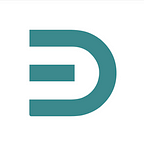Reinventing Urban Mobility with BoosterDAO
Public transportation, owned vehicles, as well as shared cars, scooters or bicycles are considered to form a finite list of choices for urban mobility. Although widely used, these options don’t reflect the needs of cities, nor their residents.
Core Issues
As far as electric vehicles are concerned, owned cars are extremely underutilised, as they stay idle for 90% of the time. E-scooters or bikes should demonstrate similar utilisation rate.
Public transportation is usually inconvenient, as it requires additional last-mile travel with either bike or shared e-scooter. Usual businesses offering shared mobility platforms form monopolised/oligopolised ecosystems and are unsustainable without investors’ money. Besides the mentioned flaws, low utilisation rates of personal vehicles mean that there is untapped opportunity for significant CO2 emission reduction.
Shift in Perceptions
Transportation sector is under pressure to reduce emissions drastically. Environmental awareness of the society and younger generation in particular encourage businesses to operate with sustainability in mind. In addition, growth of the sharing economy results in decreasing need to own a personal vehicle. In the long run, all these conditions lead to manufacturing as well as buying less. However, the need to travel from point A to point B haven’t changed that much.
Solution
The urban mobility problem could be solved with a peer-to-peer mobility platform based on blockchain protocol and governed by principles of decentralised autonomous organization. The owners of eco-friendly vehicles would be able to add them into a pool of shared vehicles, while the borrowers could use any asset for a fee. Smart contracts immediately solve the key issue of trust between the asset owner and the borrower. The participating community itself would be the driving force and decision maker.
How It Works?
There are several roles that participate in the BoosterDAO ecosystem.
Asset is an eco-friendly vehicle (car, scooter, bike, or other) registered on the platform.
Shared vehicle users, or Asset Takers. They borrow required vehicle (asset) from the shared vehicle pool and pay on either mileage or time in mobility native tokens. At the end of the trip, Asset Taker leaves the vehicle in the safe location.
Shared vehicle owners, or Asset Providers. They contribute to the shared vehicle pool either by putting a vehicle for sharing, or providing capital to acquire (Fractional Asset Providers), co-own and rent vehicles to Asset Takers. Asset Providers get a reward when Asset Takers use their vehicle.
Shared vehicle Safe Location Providers are the owners of safe locations where the assets are picked-up or dropped off. For example, individuals could provide their back yard or shopping mall could provide some parking slots to safely store the Assets. Alternatively, Safe Location Supporters could provide capital to develop and co-own a safe location in cases when actual property is not personally owned. Platform rewards Safe Location Providers and Supporters for safe location services. Additional services like charging EV or repairing a scooter would generate additional rewards.
The platform aims to include and incentivise users to take up several roles within the ecosystem. For example, an Asset Taker, who is borrowing a vehicle for a ride could also participate in the mobility platform as a Fractional Asset Provider and a Safe Location Supporter, which would lead to cheaper rides and/or passive income.
Additional Features
Under particular circumstances, the mobility platform may incentivise Asset Takers with token rewards for their contribution in CO2 emission reduction. These tokens are “mined” and added to the total supply with DAO decision on “mining” rate in different locations to balance adoption of the mobility platform and specific location vehicle pool yield.
The mobility platform is also open to including the existing ride sharing networks. They are invited to put their vehicles to the shared vehicle pool, assuming they agree to BoosterDAO conditions.
Governance
The mobility platform is governed as a DAO, where users are in full control and decisions are made in a decentralised way. All platform owners decide on new locations, ride fees, amount of vehicles needed and other important aspects. The platform incentivises all sorts of participation in decentralised decision making with reward schemes.
Are you ready?
Our team believes that BoosterDAO has a global market potential, as it significantly improves current ride sharing business model by empowering community and solving trust issues with blockchain protocol. We are eager to further develop our idea.
Come join our team or invest in us if you share the same vision.
